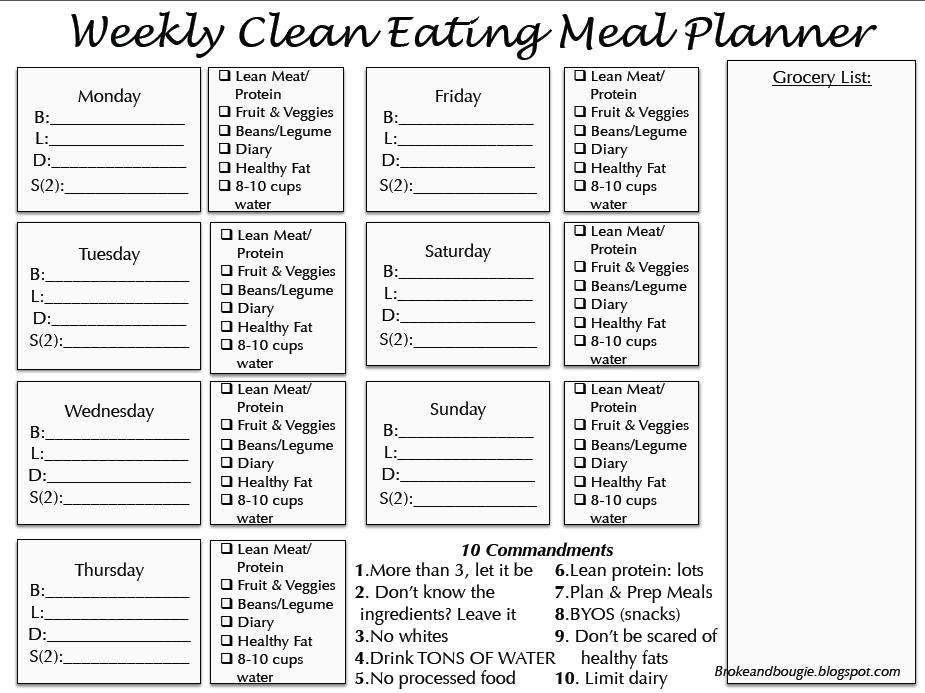A clean eating meal plan can be a great way to improve your overall health and well-being. By focusing on whole, unprocessed foods and avoiding artificial additives, you can provide your body with the nutrients it needs to thrive. Plus, clean eating can also help you maintain a healthy weight and reduce your risk of chronic diseases.
Transitioning to a Clean Eating Meal Plan
 If you’re interested in transitioning to a clean eating meal plan, there are a few key steps you can take. First, it’s important to gradually eliminate processed and packaged foods from your diet. These products often contain hidden sugars, unhealthy fats, and artificial ingredients that can be detrimental to your health.
If you’re interested in transitioning to a clean eating meal plan, there are a few key steps you can take. First, it’s important to gradually eliminate processed and packaged foods from your diet. These products often contain hidden sugars, unhealthy fats, and artificial ingredients that can be detrimental to your health.
Instead, focus on incorporating fresh fruits and vegetables, whole grains, lean proteins, and healthy fats into your meals. This will provide your body with essential vitamins, minerals, and antioxidants. You can also experiment with herbs and spices to enhance the flavor of your dishes without relying on added salt or sugar.
Meal planning can be incredibly helpful when transitioning to a clean eating lifestyle. By planning your meals in advance, you can ensure that you have nutritious options available throughout the week. This can help you avoid impulse purchases and unhealthy food choices when you’re feeling hungry or pressed for time.
Benefits of Clean Eating
 There are numerous benefits to adopting a clean eating meal plan. First and foremost, clean eating can improve your overall health. By consuming nutrient-dense foods, you can support your immune system, improve gut health, and reduce inflammation in the body.
There are numerous benefits to adopting a clean eating meal plan. First and foremost, clean eating can improve your overall health. By consuming nutrient-dense foods, you can support your immune system, improve gut health, and reduce inflammation in the body.
Clean eating can also help you maintain a healthy weight. By focusing on whole foods, you can naturally control portion sizes and reduce your intake of empty calories. This can lead to weight loss or weight maintenance, depending on your individual goals.
In addition, clean eating can have a positive impact on your mental health. Research has shown that a diet rich in fruits, vegetables, whole grains, and lean proteins can help reduce the risk of depression and anxiety.
Creating Your Clean Eating Meal Plan
 Creating a clean eating meal plan doesn’t have to be complicated. Start by identifying the foods you enjoy and that align with a clean eating philosophy. Look for recipes that incorporate these ingredients and plan your meals accordingly.
Creating a clean eating meal plan doesn’t have to be complicated. Start by identifying the foods you enjoy and that align with a clean eating philosophy. Look for recipes that incorporate these ingredients and plan your meals accordingly.
It’s also helpful to meal prep as much as possible. This can involve washing and chopping vegetables in advance, cooking large batches of grains or proteins, and portioning out meals for the week ahead. By having healthy options readily available, you can avoid relying on processed convenience foods.
Remember, it’s important to listen to your body and make adjustments as needed. If you’re feeling hungry between meals, consider adding a healthy snack, such as nuts, seeds, or a piece of fruit. And if certain foods don’t agree with you, don’t be afraid to substitute or remove them from your meal plan.
Conclusion
 Incorporating a clean eating meal plan into your lifestyle can have a lasting impact on your health and well-being. By focusing on whole, unprocessed foods, you can nourish your body and fuel it with the nutrients it needs to thrive.
Incorporating a clean eating meal plan into your lifestyle can have a lasting impact on your health and well-being. By focusing on whole, unprocessed foods, you can nourish your body and fuel it with the nutrients it needs to thrive.
Remember, the key to success is consistency and balance. Allow yourself the occasional indulgence, but make clean eating the foundation of your diet. Over time, you’ll likely notice improvements in your energy levels, digestion, and overall quality of life.
So why not give it a try? Start by creating a clean eating meal plan and see how it makes you feel. Your body will thank you.